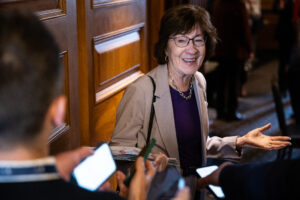Congress
Ted Cruz, Senate panel mulls permanent daylight saving time
Senators are wading into the thorny issue of whether to “lock the clock” — that is, end the practice of changing the time twice a year to account for the shifting seasons.
At a hearing Thursday, Senate Commerce Chair Ted Cruz said there was general consensus among his colleagues that Americans should stop changing the clocks by adopting permanent daylight savings time — which makes it light later in the evening and later in the morning — or permanent standard time, which does the opposite. But there isn’t agreement on which standard to embrace.
The Senate unanimously passed legislation in 2022 from Sen. Rick Scott (R-Fla.) to create permanent daylight savings time without requiring states already on permanent standard time to make the move. The bill’s passage at that time took many lawmakers by surprise, including those who said they would have hurried to the floor to block the request for speedy consideration had they known the measure was coming up for a vote. It later died in the House.
Scott said Thursday that President Donald Trump is “on board to lock the clock.” In December, Trump expressed support for ending the practice of changing time twice a year, but in March said it’s a “50/50 issue.”
He explained in remarks in the Oval Office, “If something is a 50/50 issue, it’s hard to get excited about it. I assume people would like to have more light later, but some people want to have more light earlier because they don’t want to take their kids to school in the dark.”
A White House spokesperson declined to clarify Trump’s stance further.
But Commerce Committee members also said they wanted to make sure states have latitude to make their own decisions on whether to use permanent daylight or standard time, weighing economic and health tradeoffs.
“There are very real and complicated issues and counterveiling arguments on both sides,” Cruz said. “There is widespread agreement on locking the clock … but the reason we’re holding these hearings is because these are real arguments and they have real impacts on people.”
Lawmakers heard Thursday from advocates on both sides of the issue, including the CEO of the National Golf Course Owner’s Association favoring permanent daylight savings time and a sleep medicine expert backing permanent standard time. Jay Karen, the CEO of the golf association, said that late afternoon golf activities account for a high share of revenue and that permanent daylight savings time would be a boon for outdoor recreation generally, leading to health benefits.
Karin Johnson, the sleep medicine doctor and member of the American Academy of Sleep Medicine’s advocacy committee, said permanent daylight savings time would be a “hidden mandate” that would wake Americans earlier and disrupt their circadian rhythms. She also pointed out that previous attempts to make this switch were abandoned. Permanent standard time would also lead to lower rates of depression and better sleep, she argued.
Cruz didn’t take a clear stance on whether he sided with permanent daylight savings time or standard time, but he argued that changing the clocks twice a year can indeed disrupt sleep.
“This leads to increased risks of health problems, including higher rates of heart attacks, strokes, and even car accidents immediately following the time change,” Cruz said.
Sen. Lisa Blunt Rochester (D-Del.) said it’s important lawmakers be “thoughtful” about how time changes work state-by-state.
“What works in my home state of Delaware may not work in Washington state,” Blunt Rochester said. “It’s time to figure this out. People across our country are tired of the constant cycle of falling back and springing forward.”
Congress
The Trump loyalist at the center of the Senate’s Obamacare talks
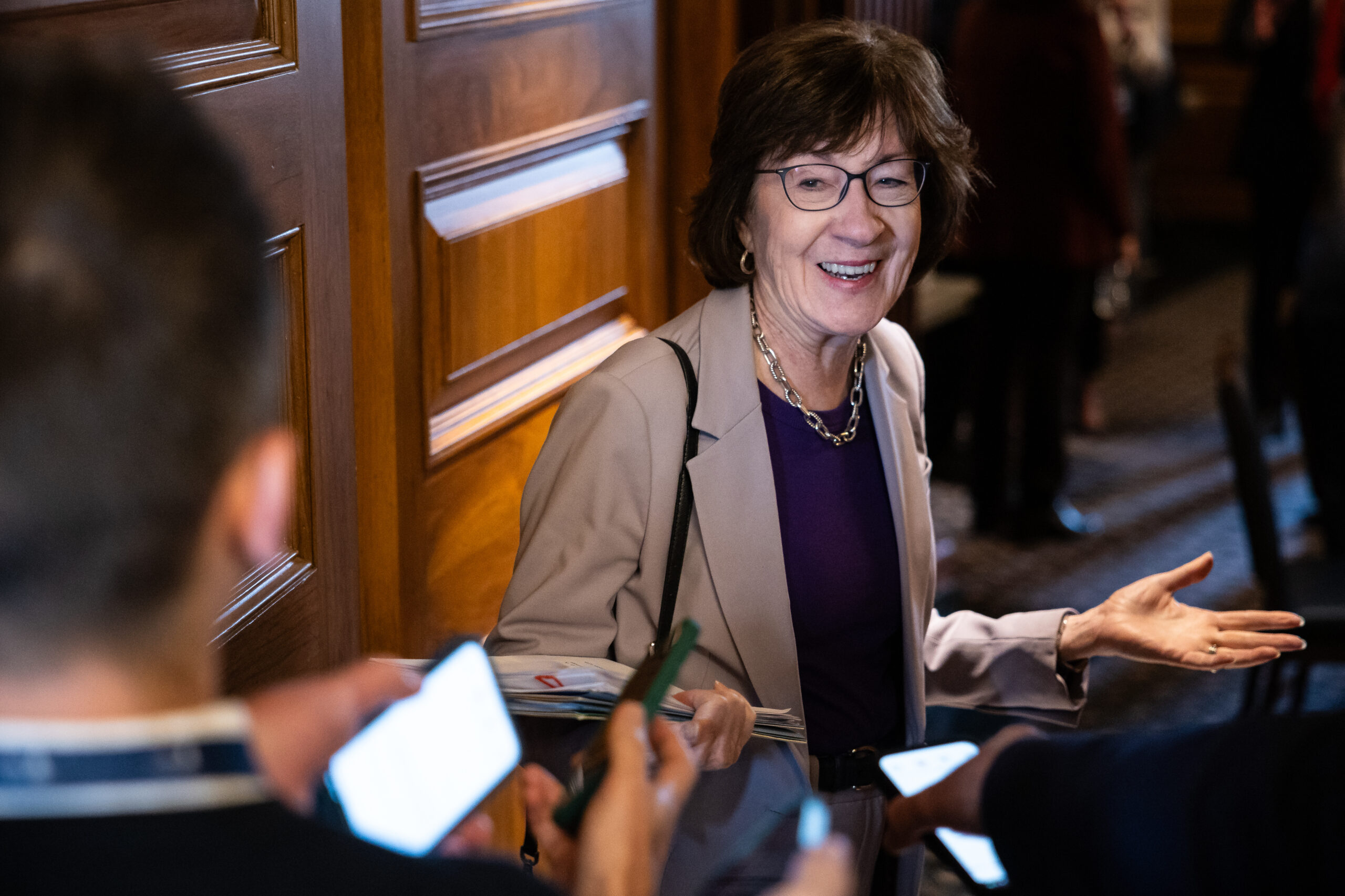
If the Senate is going to strike a deal to revive a signature Democratic policy, it will be in part because of an unlikely broker: a freshman Republican from the party’s MAGA wing.
Sen. Bernie Moreno of Ohio is, on paper, an odd fit in the core group of about a dozen senators in talks to extend Obamacare credits that lapsed on Jan. 1. Most are well-known bipartisan dealmakers, such as Republican Susan Collins and Democrat Jeanne Shaheen.
Moreno, on the other hand, joined the Senate a year ago as a Trump-anointed presidential loyalist who had just defeated longtime Democratic Sen. Sherrod Brown with hard-line attacks focused mainly on immigration. But he has a key asset — a close relationship with Trump, who will need to bless or at least tacitly accept any agreement to smooth its passage through Congress.
Asked in an interview about his decision to take a leading role in the politically fraught health care negotiations, Moreno deployed one of Trump’s best-known slogans.
“Putting America first means putting Americans first,” he said. “People are being affected, and I want to help the people who need help. That’s what we should be doing.”
He said his goal is to get roughly 35 of the Senate’s 53 GOP senators to support an eventual deal — not just a handful joining Democrats on a “defection vote” — and that he’s keeping the White House and Senate leaders closely apprised of the discussions.
Senate Majority Leader John Thune praised Moreno in an interview as “whip-smart” and “willing to do the work.”
“He’s willing to sit down with people and try and find common ground, which I think on an issue like this is challenging,” he said. “Around here, that’s worth a lot.”
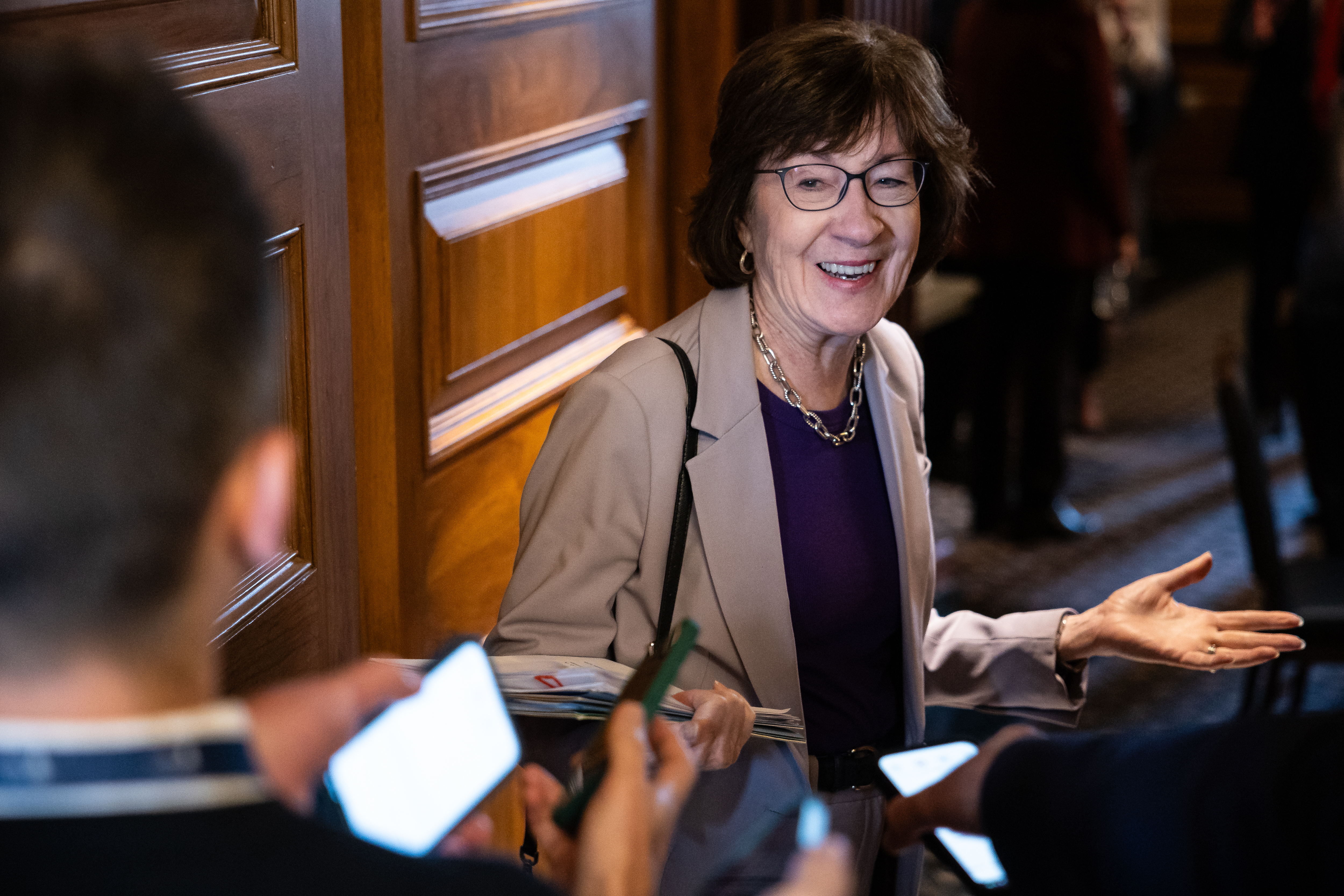
His involvement is also a sign that a new generation of bipartisan dealmakers might be starting to emerge after some of the Senate’s old hands headed for the exits in recent cycles. Moreno is now in close touch with not only Collins and Shaheen but other Senate pragmatists such as Tim Kaine (D-Va.), Lisa Murkowski (R-Alaska) and Angus King (I-Maine).
Moreno’s text chain with the dozen-member group is labeled the “EPTC OG gang” — a reference to the enhanced premium tax credits, the technical name for the Obamacare subsidies.
At times, Moreno’s new-kid-on-the-block status has been on display. After Moreno and Collins convened a meeting in December near the Capitol Rotunda, the Ohio Republican asked a reporter for directions to the room, inadvertently tipping off its location.
Minutes later, Collins walked toward the meeting seemingly astounded that word had gotten out about what she said was a “secret meeting.” Told about Moreno’s request for help, a bemused Collins put a hand to the side of her face.
Moreno said his freshman status means he doesn’t have “scars” from previous congressional fights.
“‘Oh, I don’t want to be working with this person,’ or ‘They screwed me back in 1972,’ you know?” he said. “I was in Kindergarten, so it doesn’t affect me.”
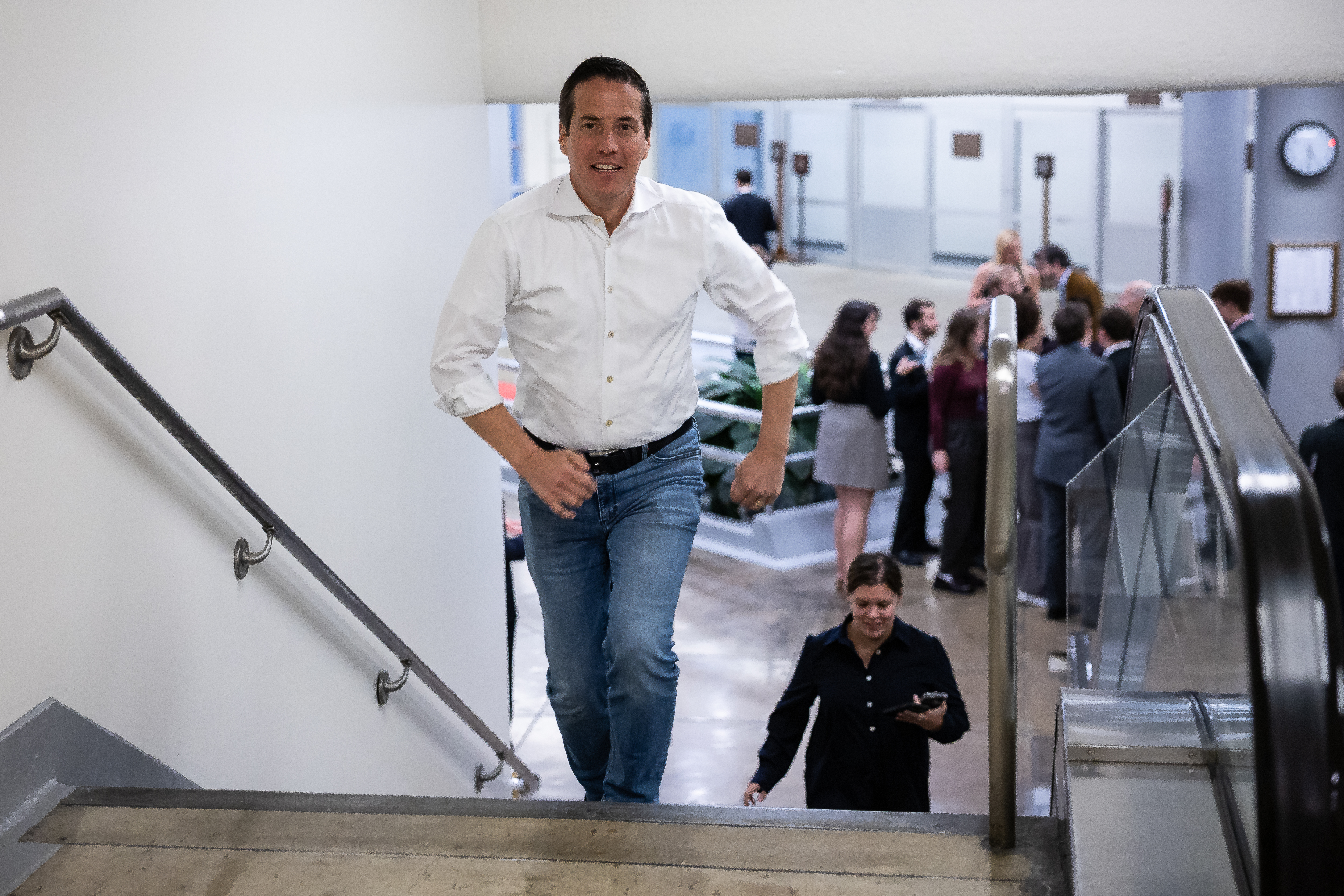
At 58, Moreno is on the younger side for the Senate, but he is already airing frustrations about the chamber’s growing polarization and making points about addressing it that jibe closely with complaints frequently heard from older generations of senators.
“I don’t think there’s enough muscle memory here about actually going in with good faith, good intentions and getting together and seeing if the deal can be cut,” he said.
The group of negotiators have their work cut out for them. They are discussing a two-year extension of the Obamacare tax credits that were beefed up under former President Joe Biden. Since their lapse at the end of last year, the tax credits — which were used by more than 500,000 Ohioans, according to KFF data — have reverted to their original 2010 levels, benefiting only those with incomes under 400 percent of the federal poverty level.
The Senate group’s proposed extension would include new restrictions including a $5 a month minimum premium payment and an income cap set at 700 percent of the federal poverty level. In the second year, the proposal would also give enrollees to take their subsidy as cash in pre-funded health savings accounts — an arrangement favored by Trump.
Moreno believes the group is in the “red zone,” and could be ready with text as soon as Tuesday or Wednesday. But some Democrats involved in the discussions have been more circumspect, wary about a thorny dispute over abortion.
Many Republicans say they will not be able to support a compromise unless the subsidies are tightened so they cannot fund abortions in any manner. Democrats say the safeguards built into the Affordable Care Act upon its passage in 2010 are sufficient.
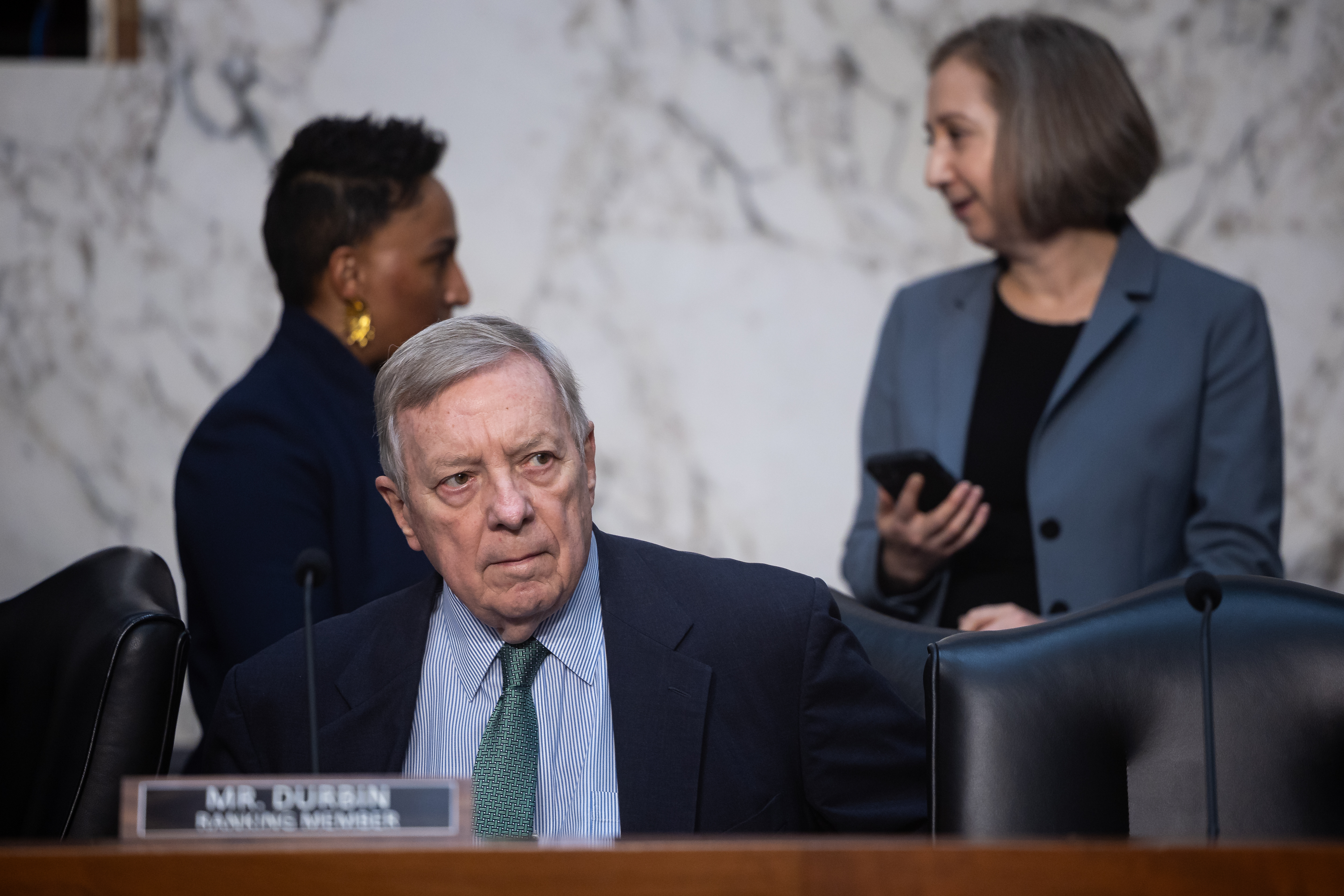
“I think we’ve made clear from the start, the Democrats feel we have to come to the rescue and I hope we can do it,” said Sen. Dick Durbin of Illinois, the No. 2 party leader. But he warned that if the Republicans “decide they want to make this an abortion issue, I’m afraid that’s the end of the conversation.”
Moreno said the group wasn’t trying to relitigate questions over federal funding for abortions but acknowledged there is a “dispute” over whether that is currently happening.
Republicans’ heartburn over the issue flared last week after Trump suggested in remarks to House members that they should be “flexible” on abortion language — sparking outrage from outside conservative groups that ricocheted back on Congress.
A person granted anonymity to discuss the negotiations said Republicans in a larger negotiating group of roughly two dozen senators haven’t yet landed on a consensus position — much less the entire Senate GOP conference.
“There’s no need to come to a compromise because it’s already been dealt with in the Affordable Care Act,” Shaheen said when asked about the issue.
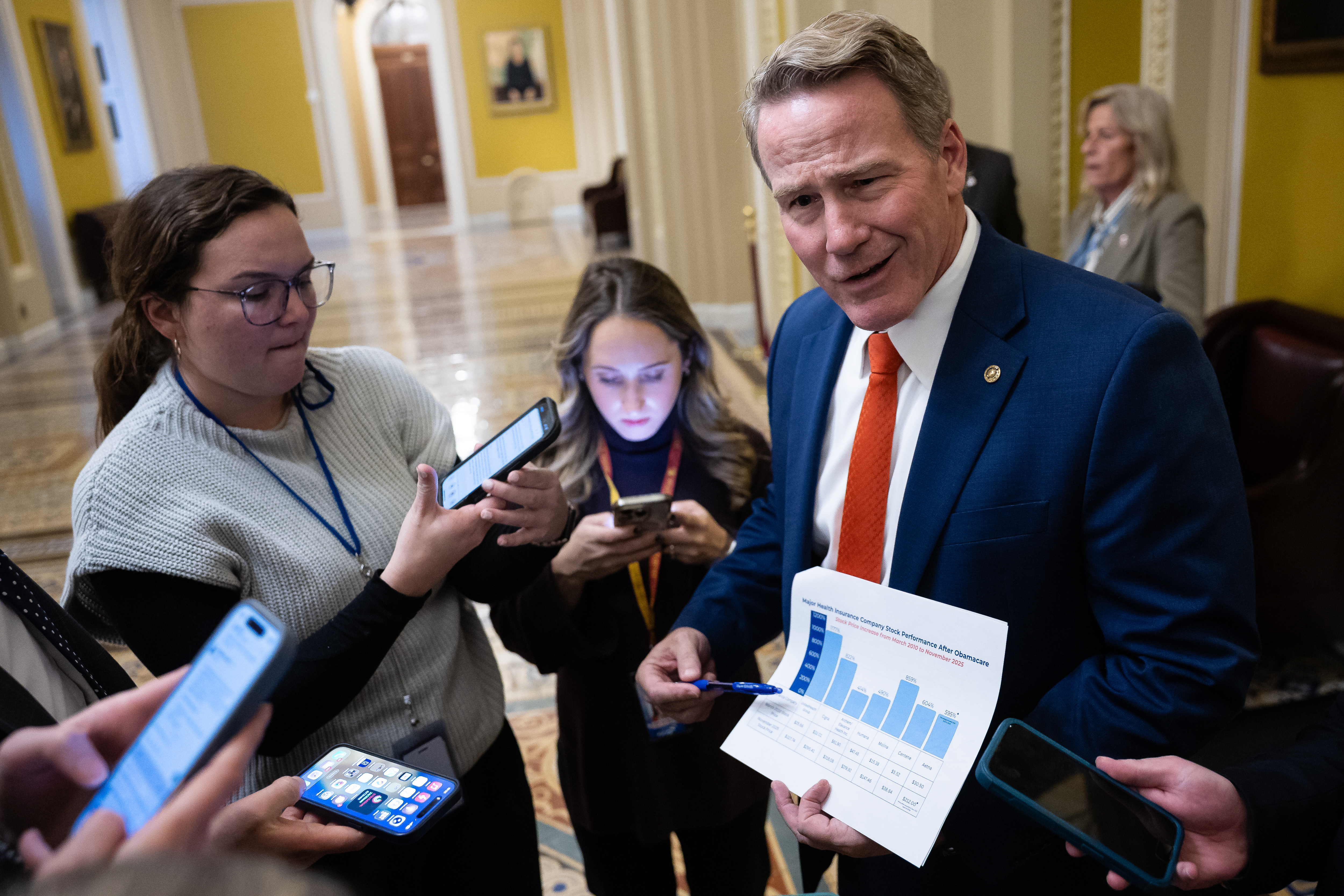
While the abortion question is a powerful force pulling some Republicans away from a deal, there are also compelling reasons for many to embrace a compromise — not least of which is the threat the expiring subsidies pose to the GOP majorities in November.
Among the vulnerable lawmakers is Moreno’s GOP partner in the Ohio delegation, Sen. Jon Husted, who is facing a likely matchup with Brown.
Moreno acknowledged that despite a feeling among negotiators that they are close to an agreement, it could all come to naught. Lawmakers “are on the clock,” he said, and getting a deal is an “if.”
“Capital I, capital F,” he said. “75-point font.”
Congress
Rep. Salazar touts Venezuela’s Machado before her visit
Rep. Maria Elvira Salazar on Sunday said Venezuela’s opposition leader Maria Corina Machado has “earned” enough to receive President Donald Trump’s backing as the South American country recovers from the capture of Nicolas Maduro.
“She proved to the international community that they, the opposition forces, had won the election,” the Florida Republican told CBS’ “Face the Nation.”
Salazar, who said she was in contact with Machado during the time she was in hiding during Maduro’s rule, added that Trump will be ”highly, highly pleased” with Machado when she visits Washington this week.
“I am sure that she will have a very good, long, solid conversation with the President,” Salazar said. “I think we are going to welcome her in Congress, and I’m sure that President Trump is going to be highly, highly pleased with that meeting.
Salazar’s optimism comes as the organization that oversees the Nobel Peace Prize announced Machado cannot give her recent award to Trump.
Machado won the prestigious prize in October, and quickly dedicated the award to the president. Trump had repeatedly expressed his desire to be awarded the prize, particularly in light of his work to end the Israel-Hamas war and other conflicts.
Trump declined to endorse Machado as the nation’s new leader in the wake of the raid that netted Maduro and left Venezuela at least temporarily leaderless. But Salazar on Sunday said Machado “is part of the transition” in Venezuela now that Maduro is no longer in power — a sharp difference from Trump’s previous statements that the U.S. will run Venezuela.
Salazar said there are things that the U.S. may not know about what is happening in Venezuela under Maduro’s allies, Delcy Rodríguez and Diosdado Cabello.
Still, her optimism continued as she said she is confident American prisoners will soon be released.
“We do not want to make any mistakes and I am sure that the political prisoners will be coming out and that we’re not giving them, meaning Diosdado and Delcy, any type of leeway for them to really run the country,” said Salazar. “We will see. I happened two, three weeks ago. Let’s give them a little bit more time before we see more results.”
Congress
Rand Paul: Bombing Iran ‘is not the answer’
Sen. Rand Paul expressed concerns Sunday over President Donald Trump’s threats to bomb Iran as the Middle Eastern country sees widespread protests continue.
Speaking with ABC’s “This Week,” the Kentucky Republican said he is not sure striking Iran “will have the effects intended.”
“We wish freedom and liberation the best around the world, but I don’t think it’s the job of the American government to be involved with every freedom movement around the world,” Paul said.
Paul also expressed concerns over how the administration would distinguish between Iranian protesters and law enforcement if Trump were to approve military action in the region.
“How do you drop a bomb in the middle of a crowd or a protest and protect the people there?” Paul said. “Plus there’s the constitution that we don’t let presidents bomb countries when they feel like it. They are supposed to ask the people through the Congress for permission.”
Protests erupted in the Islamic Republic late last month as Iranians expressed dissatisfaction over the country’s economic free fall. But as demonstrations have continued, many have begun to demand total regime change.
Reports indicate thousands have been arrested, and agencies have been unable to confirm the total death toll due to an internet blackout as the regime works to quell the dissent. The latest Associated Press report put the figure as at least 538.
Trump on Friday warned Iranian leaders, “You better not start shooting, because we’ll start shooting, too.” And an a post to Truth Social on Saturday, the president wrote that “Iran is looking at FREEDOM, perhaps like never before. The USA stands ready to help!!!”
But Paul on Sunday said that U.S. involvement may unintentionally rally protesters behind the Ayatollah.
“If you bomb the government, do you then rally people to their flag who are upset with the Ayatollah but then say, gosh, we can’t have a foreign government invading or bombing our country?” Paul said. “It tends to have people rally to the cause.”
He added that the protests are justifiable.
“The best way is to encourage them and say, we would recognize a government that is a freedom-loving government, that allows free elections, but bombing is not the answer,” Paul said.
-

 The Dictatorship11 months ago
The Dictatorship11 months agoLuigi Mangione acknowledges public support in first official statement since arrest
-

 The Dictatorship4 months ago
The Dictatorship4 months agoMike Johnson sums up the GOP’s arrogant position on military occupation with two words
-

 Politics11 months ago
Politics11 months agoFormer ‘Squad’ members launching ‘Bowman and Bush’ YouTube show
-

 Politics11 months ago
Politics11 months agoBlue Light News’s Editorial Director Ryan Hutchins speaks at Blue Light News’s 2025 Governors Summit
-

 Politics11 months ago
Politics11 months agoFormer Kentucky AG Daniel Cameron launches Senate bid
-

 The Dictatorship11 months ago
The Dictatorship11 months agoPete Hegseth’s tenure at the Pentagon goes from bad to worse
-
Uncategorized1 year ago
Bob Good to step down as Freedom Caucus chair this week
-

 Politics9 months ago
Politics9 months agoDemocrat challenging Joni Ernst: I want to ‘tear down’ party, ‘build it back up’










